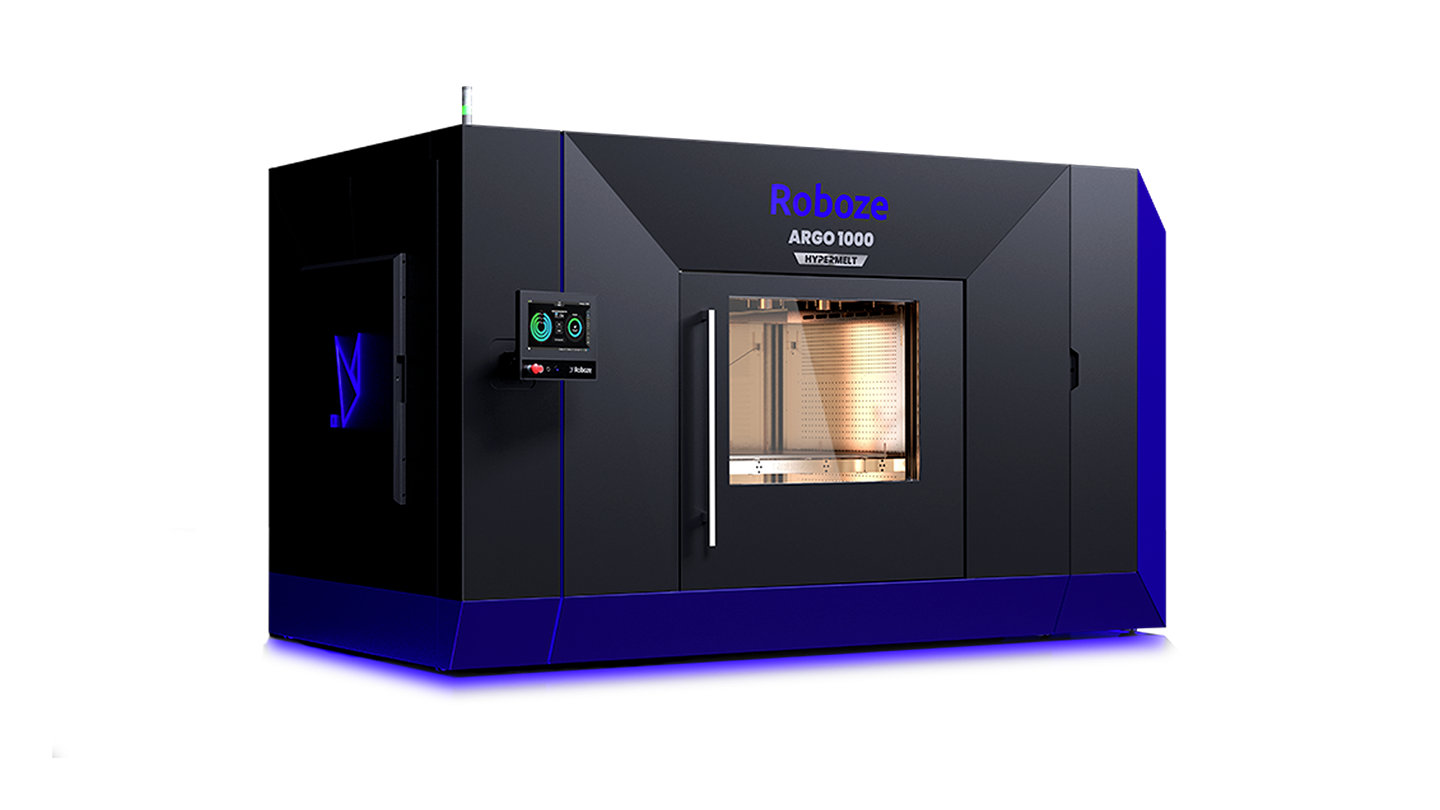3D printing has revolutionized the manufacturing industry, enabling the production of complex components with unprecedented ease and versatility. However, when it comes to super polymers and large format parts, the challenge becomes more complex. Roboze's ARGO 1000 HYPERMELT technology is here to overcome these challenges and offer an advanced solution.
Why is a Heated Chamber up to 180°C Crucial?
Printing super polymers is a fascinating but highly delicate operation. These materials offer an extraordinary combination of chemical, thermal and mechanical resistance, but require strictly controlled printing conditions to exploit their full potential. Temperature is a critical element in this context, and the 180°C ARGO 1000 HYPERMELT heated chamber is the key to ensuring the correct processability of super polymers.
Super polymers are high-melting thermoplastic materials used in high-performance applications such as aerospace, automotive and chemical industries. However, their processing via 3D printing is often a complex operation due to the high extrusion temperatures that require precise control of the polymer melt throughout the component's production phase. This peculiarity, if not adequately controlled, especially for large-format parts, can influence the quality and performance of the finished product. In particular, some of the typical defects of 3D printing technology are warping and poor adhesion between layers.
"Warping" is a phenomenon in which the edges of the piece lift during printing, creating unwanted deformations. This behavior is found more in virgin polymers and not in polymeric composites where, on the contrary, the presence of fibers allows for greater dimensional stability. Therefore, the ARGO 1000 HYPERMELT’s heated chamber solves this problem by maintaining a uniform temperature at 180°C in order to avoid sudden temperature changes, ensuring that the dimensional shrinkage of the printed part is minimized even in virgin polymers. Furthermore, the possibility of heating the chamber up to 180°C also guarantees the advantage of favoring the increase in the degree of crystallinity in semi-crystalline polymers. Greater crystallinity of the polymer also guarantees having a higher chemical inertia given by the more ordered crystalline structure of the polymer.
As regards the poor adhesion between the layers, the ARGO 1000 HYPERMELT’s heated chamber slows down the cooling kinetics of the extruded polymer, allowing a high temperature to be maintained for a longer time during the deposition of the material, thus promoting maximum adhesion between the layers.
In conclusion, the ARGO 1000 HYPERMELT’s heated chamber expands the processability of high-melting polymers, not necessarily filled, reducing dimensional deformations, increasing the degree of crystallinity, guaranteeing greater adhesion between the layers during the printing phase in order to obtain products with the highest mechanical performance and greater chemical inertia.
www.roboze.com

 Deutsch (Germany)
Deutsch (Germany)  Polski (PL)
Polski (PL) 










